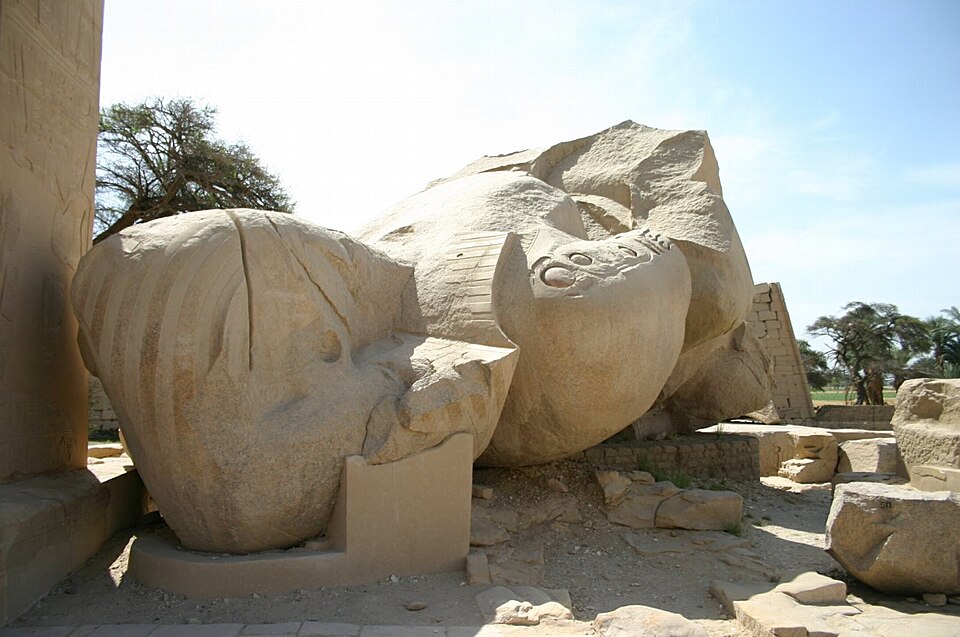
In a 1977 letter to Nature, University of Malaya geologist N.S. Haile observed the poor quality of an 1818 paper by one P.B. Shelley and presented this improvement:
Twin limb-like basalt columns (‘trunkless legs’) near Wadi Al-Fazar, and their relationship to plate tectonics
Ibn Batuta and P.B. Shelley
In a recent field trip to north Hadhramaut, the first author observed two stone leg-like columns 14.7 m high by 1.8 m in diameter (medium vast, ASTM grade scale for trunkless legs) rising from sandy desert 12.5 km southwest of Wadi Al-Fazar (Grid 474 753). The rock is a tholeiitic basalt (table 1); 45 analyses by neutron activation technique show that it is much the same as any other tholeiitic basalt (table 2). A large boulder 6 m southeast of the columns has been identified as of the ‘shattered visage’ type according to the classification of Pettijohn (1948, page 72). Granulometric analysis of the surrounding sand shows it to be a multimodal leptokurtic slightly positively skewed fine sand with a slight but persistent smell of camel dung. Four hundred and seventy two scanning electron photomicrographs were taken of sand grains and 40 are reproduced here; it is obvious from a glance that the grains have been derived from pre-cambrian anorthosite and have undergone four major glaciations, two subductions, and a prolonged dry spell. One grain shows unique lozenge-shaped impact pits and heart-like etching patterns which prove that it spent some time in upstate New York.
There is no particular reason to suppose that the columns do not mark the site of a former hotspot, mantle plume, triple junction, transform fault, or abduction zone (or perhaps all of these).
Haile added, “I pass this on in the hope that it will be of value to authors in preparing papers for publication.”
